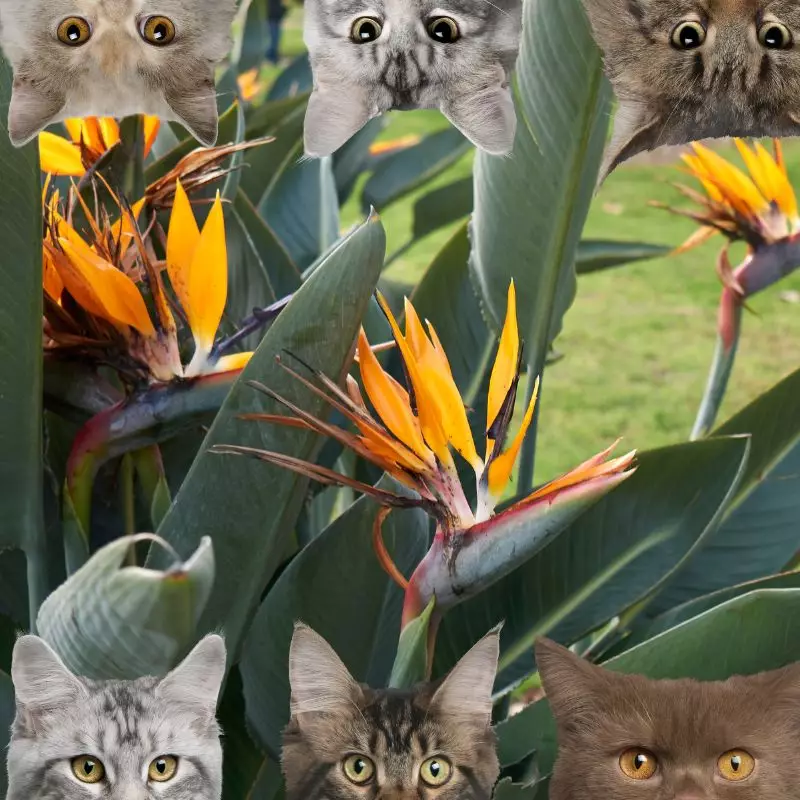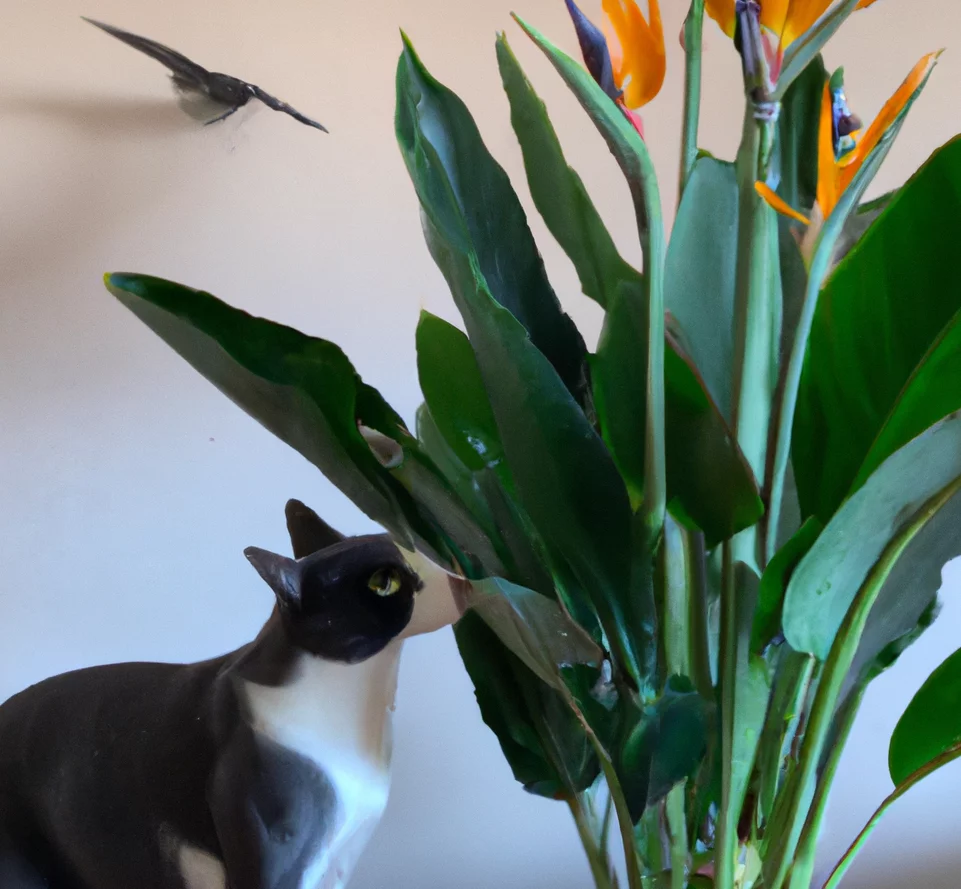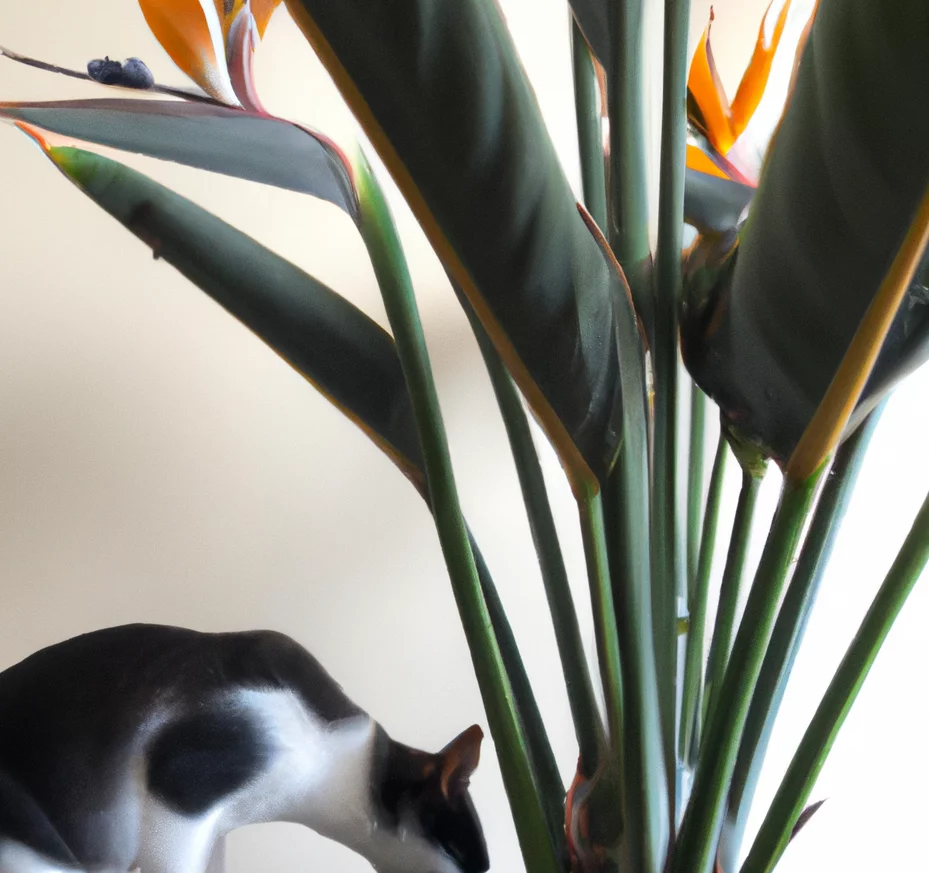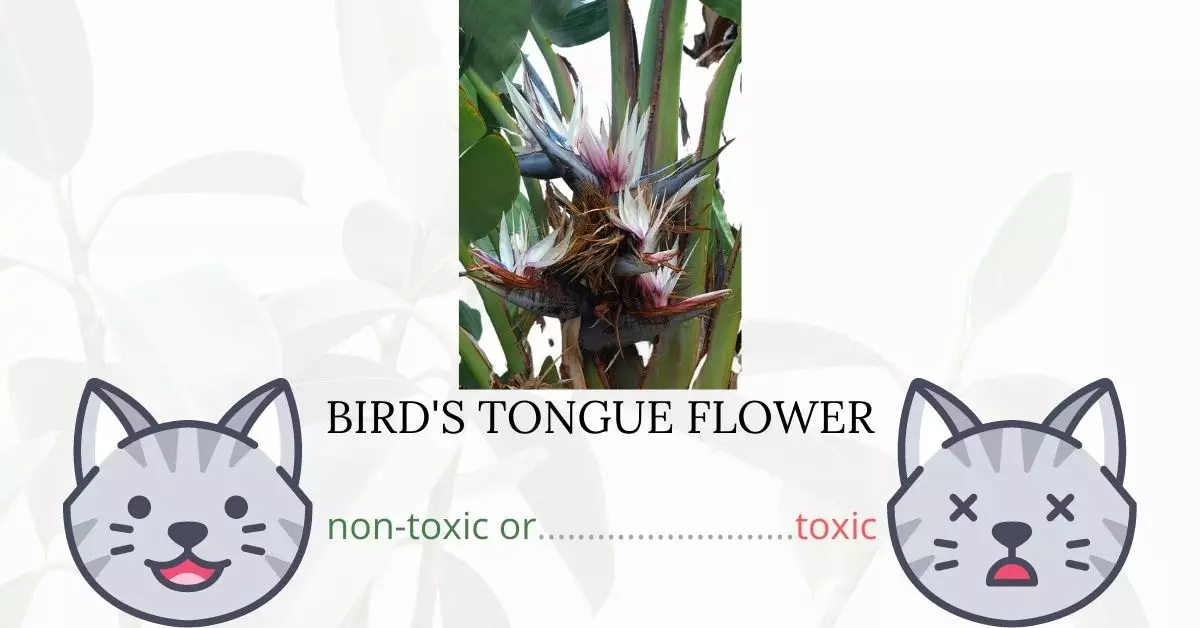Yes, the Bird’s Tongue Flower, commonly known as the birds of paradise flower or crane flower due to its resemblance to a soaring bird, is toxic to cats. While this plant is globally admired for its striking beauty and exquisite aroma, it poses significant risks to feline friends. Specifically, the seeds and berries of the Bird’s Tongue Flower can be harmful to cats, resulting in distressing symptoms.
Collaborating closely with a team of experienced DVMs (doctors of veterinary medicine), this article aims to offer accurate and up-to-date information regarding the potential risks associated with various plants, focusing on the Bird’s Tongue Flower in this context. Furthermore, to ensure comprehensive accuracy, we’ve researched high-authority websites such as ASPCA and PetMD for each plant mentioned.
The toxicity primarily stems from the seeds and fruit of the Bird’s Tongue Flower, which can disrupt the pH level in a cat’s stomach, leading to vomiting. If ingested in large quantities, these toxins may cause direct harm to the kidneys and liver, potentially resulting in organ failure and, in rare cases, death.
Clinical Signs of Bird’s Tongue Flower Poisoning in Cats

When a cat comes into contact with, smells, or ingests parts of the Bird’s Tongue Flower, certain clinical signs can emerge, indicating potential poisoning. It’s essential to understand and recognize these symptoms, as early intervention can prevent their escalation. Here are the key clinical signs and their underlying causes:
- Reluctance to be touched: This may arise due to internal discomfort or pain the cat is experiencing after ingesting the flower. The discomfort makes them more sensitive to external stimuli, including touch.
- Refusal to eat: Ingesting toxins can upset the cat’s gastrointestinal system, making them feel nauseous or causing a loss of appetite. The disrupted pH level in their stomach from the plant’s toxins can make food seem unappealing.
- Vomiting: A direct result of the upset pH balance in the cat’s stomach caused by the flower’s toxins. Vomiting is the body’s way of trying to eliminate the source of the problem.
- Dehydration: Vomiting and refusal to eat can lead to dehydration. Dehydration occurs when the cat loses more fluids than it takes in, and repeated vomiting exacerbates this condition.
- Lethargy: Due to the body’s effort to combat the toxins and the stress placed on the liver and kidneys, cats may exhibit decreased energy levels or lethargy. This is also an indirect result of dehydration and loss of nutrients from not eating.
Though death from Bird’s Tongue Flower poisoning is rare, it’s crucial to act quickly if you suspect your cat has come into contact with this plant. Prompt veterinary attention can ensure your feline friend receives the care and treatment they need.
First Aid and Treatment of Bird’s Tongue Flower Poisoning in Cats

The most common technique to treat poisoning in cats is to give them additional liquid intravenously. The vet will be able to prevent dehydration as a result of fluid loss due to prolonged vomiting by doing so. Fluid treatment has a more direct effect as it causes the body to flush the irritating substances out through urination. In severe circumstances, the vet may request that your cat be closely monitored in his facility for a few days. Depending on your cat’s condition, he may prescribe drugs as needed.
Recovery from Bird’s Tongue Flower Poisoning in Cats

Your cat will totally recover in a few days or weeks, depending on the severity of the poisoning. When you arrive home, keep the cat’s activity levels low so that it has enough energy to recover from the poisoning experience. To avoid overloading the cat’s stomach, tiny portions of food should be given to it initially.
Prevention of Bird’s Tongue Flower Poisoning in Cats
You should think about how to keep your cat from getting to your bird of paradise plant, or better yet, get rid of it right away. You can also invest in repellents and deterrents and build a cat-proof plant terrarium. You can also teach your cats not to eat plants or provide them with safe alternatives to graze on.
If you love plants but have cats at home, check out these lists:





